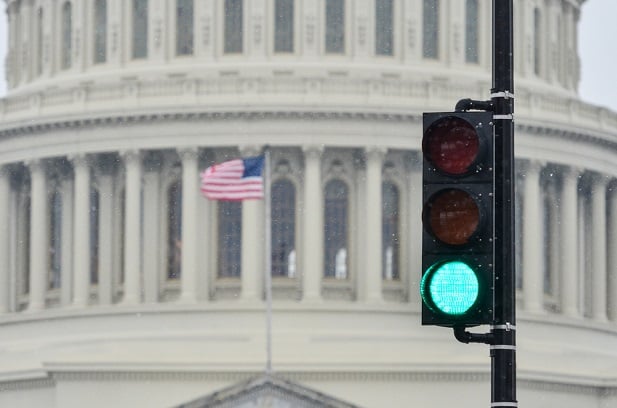A third round of relief from the coronavirus pandemic has made its way through the Senate and House of Representatives and has been signed by President Trump.
The Coronavirus Aid, Relief and Economic Security Act (CARES Act) provides over $2 trillion in relief for businesses and individuals. It also offers new avenues for defined contribution retirement plan participants to withdraw funds from their accounts in order to pay COVID-19-related expenses, if their employer elects to open those avenues.
Some of the largest 401(k) and 403(b) plan recordkeepers are forcing employers to make that choice on just a few days' notice.
New distribution option
The CARES Act creates a new form of in-service distribution for participants who are affected by COVID-19. Such a "coronavirus-related distribution" — or CRD — is not subject to the 10% early distribution penalty under Tax Code Section 72(t), may be repaid to the plan over a three-year period, and is taken into ordinary income by the recipient over a three-year period to the extent that it is not repaid. Distributions may not exceed $100,000 per eligible participant.
Significantly, this is an optional benefit that may be — but is not required to be — made available by plan sponsors.
If a plan sponsor chooses to make this new form of distribution available, CRDs may be made to eligible individuals only for the period from January 1, 2020, through December 31, 2020. An eligible individual includes a participant:
- Who is diagnosed with COVID-19;
- Whose spouse or dependent is diagnosed with COVID-19; or
- Who experiences adverse financial consequences
- as a result of being quarantined, laid off or furloughed;
- or having work hours reduced due to COVID-19,
- being unable to work due to an absence of child care caused by COVID-19,
- the closing of a business as a result of COVID-19,
- or other factors identified by the Secretary of the Treasury.
The plan administrator may rely on a participant's certification that he or she satisfies any of these criteria.
Immediate decisions required by recordkeepers
Some of the nation's largest recordkeepers are forcing employers to decide within days whether to offer this new form of distribution. Even before the CARES Act made it out of the House, Fidelity Investments notified some of its plan sponsor clients by email that they must affirmatively opt out of the new form of distribution by March 31, 2020, if they do not want to make it available. Some plan sponsors first received that notice from Fidelity on March 26, effectively giving them two business days to decide.
As the ink on this new legislation is not yet dry, there are a number of unanswered questions about coronavirus-related distributions.
For instance, it is not clear whether a standard in-service distribution that was taken earlier in 2020, and that was subject to the 10% early distribution tax, may now be "recharacterized" as a coronavirus-related distribution. The process by which CRDs may be repaid to the distributing plan (or another plan or IRA) also is not clear. And although immediate access to cash may ease the financial burden that many participants now face, it is also worth considering how such distributions might affect retirement readiness in the years to come, especially given the wildly volatile markets.
Spencer Fane recommends that plan sponsors who are forced to decide whether to offer CRDs within the coming days first consult with their investment advisors and/or legal counsel.
Other retirement reforms
The CARES Act also provides plan loan relief for individuals affected by the pandemic.
Eligible individuals (as described above) are entitled to a temporary increase in the amount available as a loan (up to $100,000) for loans taken within the 180-day period following enactment of the Act. Any plan loan payment that comes due from an eligible individual during the period beginning with the passage of the CARES Act and continuing through December 31, 2020, will be delayed for an additional year.
Subsequent loan payments must be adjusted to reflect the delay and any interest that accrues during the delay.
In addition, the CARES Act provides a waiver of any required minimum distributions that otherwise would have been due in 2020. This relief applies to qualified defined contribution retirement plans (such as 401(k) plans), Code Section 403(a) and 403(b) plans, and governmental Code Section 457(b) plans.
Plan amendments will be required to reflect this relief, as will notices to participants. Plans generally will have until the end of the plan year beginning on or after January 1, 2022, to adopt such amendments, although notices to participants should be distributed sooner. Governmental plans will have an additional two years to adopt amendments.
The CARES Act also offers relief to sponsors of defined benefit plans, and expands relief to health plan sponsors. This is just one of many legislative and regulatory initiatives announced in a dizzying flurry over the past few weeks, and the landscape is likely to experience continued change.
Greg Ash is a partner at Spencer Fane LLP in the firm's Overland Park, Kansas office. He is chair of the firm's Employee Benefits Practice Group and helps his clients maximize the value and minimize the risks inherent in their benefit plans.
© 2024 ALM Global, LLC, All Rights Reserved. Request academic re-use from www.copyright.com. All other uses, submit a request to [email protected]. For more information visit Asset & Logo Licensing.









